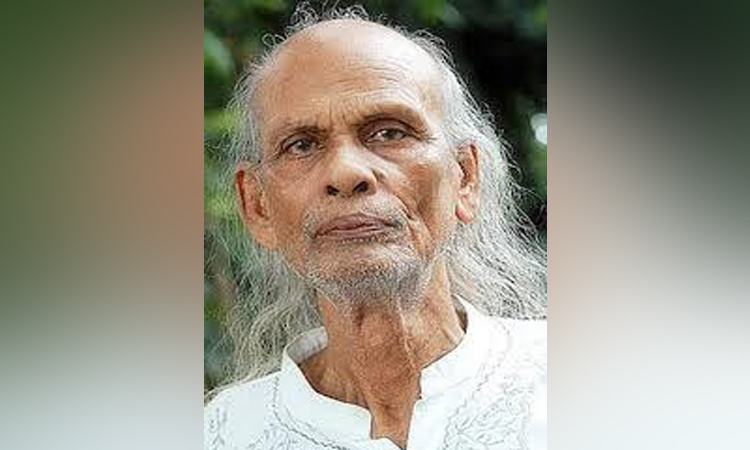News Flash
News Flash

By Md Aminul Haque
SUNAMGANJ, Sept 13, 2025 (BSS) - The soulful songs of Baul Shah Abdul Karim remain a powerful voice against social inequality, economic hardship and communalism in Bangladesh.
His compositions, deeply rooted in the 'haor(vast wetland)' region's realities, have long reflected the struggles of agricultural life, especially the devastating impacts of floods, crop failures and waterlogging.
Shah Abdul Karim was born on February 15, 1916, in Dhal village of Dirai upazila, Sunamganj district. Despite growing up poor and facing many difficulties, he became a famous Baul artist and wrote over 1,600 songs.
His music highlighted the problems faced by the people of the 'bhati (Lowland)' region and offered a message of hope and resistance.
Through his songs, Baul Shah Abdul Karim protested against economic inequality, exploitation, superstitions and religious bigotry, earning the title of the "Baul of the masses."
His work has been a source of inspiration for various social and political movements, echoing themes of equality, non-communalism, and progressive consciousness.
Some of his renowned songs include 'Bande Maya Lagaiche, Piriti Shichaiche', 'Age Ki Sundar Din Kaitaam', 'Ami Kulhara Kalankini', 'Kemne Bhulibo Ami- Bachi Na Tare Chara' and 'Mahajane Banayache Mayurpankhi Nao'.
Although Shah Abdul Karim passed away on September 12, 2009, at the age of 93, his legacy lives on through his timeless melodies.
The Baul artist's songs have long served as a weapon against religious blindness and social injustice, fostering unity and eliminating discrimination among people.
Inspired by Baul masters like Fakir Lalon Shah, Punju Shah, and Duddu Shah, Karim's songs express the happiness, sadness, and dreams of people in simple yet meaningful words.
Despite enduring humiliation and hardships for his outspoken songs against religious fanaticism, Shah Abdul Karim remained steadfast, lending his voice to movements such as the anti-British struggle, the Kagmari Conference, the Language Movement, the Liberation War, and anti-dictatorship protests.
His songs were compiled into seven books, and the Bangla Academy translated ten of his compositions into English.
While his music was initially popular mostly in the bhati region, a resurgence in recent years through reinterpretations by other artists brought his songs to national prominence.
He was honored with the prestigious Ekushey Padak for his contributions.
Documentary filmmaker Shakur Majid captured Karim's life in the film Bhatir Purush.
Additionally, the novel Kulhara Kalankini by Saymon Zakaria, published in 2017, is based on his life.
Artist Jamir Uddin said, "I am a fan of Baul Karim. I discovered him through his songs, and his music continues to inspire many."
Fans and relatives regularly organize singing events to pay tribute to the Baul maestro, aiming to preserve his melodies in their original form and spread his message far and wide.
As Baul Shah Abdul Karim's songs continue to resonate across generations, his music remains an enduring testament to the spirit of resilience, humanity, and social justice.